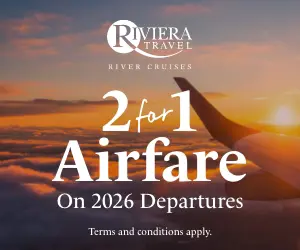Canada’s New Federal Budget Tackles Airline Fees
by Sarah Milner
Photo: Shutterstock.com
The Canadian federal government released its new budget this week, which outlines new plans that will impact the travel industry.
The government is pitching several changes for the airline industry under the section “Fairer Prices, Fewer Fees.” Targeting “junk fees,” the government aims to modernize the Competition Act, through Bill C-59, to address drip-pricing (when a retailer displays only part of an item’s price, only revealing the total amount at the end of the buying process).
The document calls on other levels of government to address such hidden fees as well: “Where junk fees fall under federal jurisdiction, the federal government is taking action. Many of the junk fees that frustrate Canadians are under provincial and territorial jurisdiction. That’s why the federal government is calling on all orders of government to do their part to cut junk fees, so that Canadians can keep more of the money they worked hard to earn.”
The government also plans to amend the Air Passenger Protection Regulations (APPR), developing new regulations to strengthen airline fee transparency and ensure children under 14 are sat next to their accompanying adult at no extra cost.
“Even though airlines must show a ticket price that includes taxes, fees, and charges, Canadians can still face additional fees for optional services at different steps of the journey,” the budget states. “From selecting seats, to checking bags, to meals on board, it is only fair that Canadians have full transparency about the full cost of their flight.”
Jeff Morrison, president and CEO of the National Airlines Council of Canada (NACC), responded to the budget on April 17.
“Ancillary fees charged by airlines put greater choice and flexibility in the hands of passengers, and NACC members are transparent in this regard—we will need greater clarity on the intent of this announcement,” he said in a statement.
“A competitive aviation sector is critical to air travel affordability, and Canada’s high taxes and third-party fees actively deter competition, while doing nothing to enhance the passenger travel experience. More needs to be done by the federal government to address the lack of competitiveness caused by excessive third-party fees and charges.”
The 2024 federal budget also pledges investments in the aviation industry, allocating funds to support research an innovation, sustainable biofuels, and airport infrastructure. The Minister of Transport will release a policy statement this summer highlighting investment opportunities for airport facilities, such as pension funds.
Finally, as part of a larger plan for economic reconciliation with Indigenous peoples and communities, the document allocates $2.5 million (CAD) for 2024 to 2025 “to continue supporting the Indigenous tourism industry through the Indigenous Tourism Association of Canada.”
























